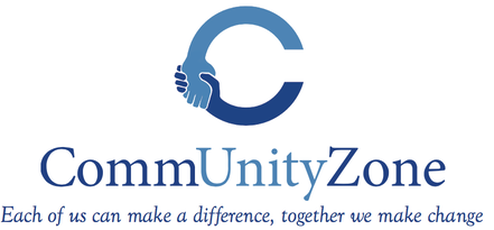|
This piece originally published in the Daily Item, Lewisburg, PA, on Sunday, June 11th, 2023.
In recent years, amid uncertainty and social unrest, I’ve heard a curious word cropping up. In my youth, I remember hearing all about our global world, our connected society, and the importance of focusing on our similarities above our differences. But recently, it seems there’s a growing movement toward talking about ‘tribes.’ Usually this comes in a positive message focused on notions of connection and solidarity. You can search the phrase ‘find your tribe’ online and discover one article after another on the topic: How to find your tribe in 5 simple steps, what steps you need to take, myths and realities about the process. These range all the way from mental health blogs and simple entertainment to career platforms and psychology sites. This idea of the tribe has become a shorthand for describing friends who last through adulthood, or groups of people with whom you can share some common experience or identity. The term is used to refer to interactions and relationship: our school, our work, our hobbies, and our self-identities all place us into tribes. And I certainly agree that it can be a wonderful thing to feel connection and togetherness with others based on all these facets of a life. But I’m a writer at heart, and as part of that, I pay attention to the nuances of words and their use. It’s generally agreed that the English language contains over a million words, so I find it both meaningful to pick the right one, and fascinating to consider how people use those words. When a particular word finds purchase in our collective consciousness and discussions, it’s all too easy to miss its context and meaning, and how that influences the ideas the word is used for. The word ‘tribe’ has a complex history. In English, it gained prominence through its use as an anthropological term. It fell out of favor with many anthropologists alongside the theory of unilateral cultural evolution; that is to say, when we realized not every culture develops in the same way, we started challenging the words we’d used to describe that idea. But the word, and the trouble I have with its meaning, dates back long before European settlers used it to describe indigenous peoples. As according to Encyclopedia Brittanica, it comes directly from the Latin tribus, which referred to a unit of the Roman state. The first Roman tribes were divided along ethnic lines. Later, they were based more on localities, but eventually, even geography no longer played a part. To some extent, though, socio-economic class always did. And while the tribes’ significance and usage varied through the Republic and Empire, they were always a method of grouping - and dividing - the population. These origins very much carried into tribe’s anthropological meaning. The smallest division of human society recognized for a long time was the concept of ‘bands.’ These are groups of relatively few people, usually no more than 30 to 50, who live together and cooperate as equals in nearly all social behaviors: subsistence, caring for those who need care, protecting one another, and carrying out any societal rituals. When we think of an idyllic, simple life with the ones we love, this is what we probably envision. Tribes are another step up the chain of societal development and size. Even if the theory of unilateral cultural evolution has been disproven, the words and their meanings linger as shorthand descriptors. And under that shadow, tribe means not just a larger gathering of individuals. Tribe means having a name for the group, to differentiate themselves from outsiders. Tribe means constructing a social hierarchy, where some members wield more power than others, and can direct the efforts and actions of the group. Tribes are the level at which groups usually develop agriculture. It’s also the level at which people begin to practice warfare against one another. Words have a great deal of power. That power can change over time, but it takes time, and conscious effort to change the way we use them. So if you say you want connection, or friends, or bonds, I agree. But be wary of retreating to a tribe.
0 Comments
Leave a Reply. |
Authorship
The CommUnity Zone blog features stories and updates from all the team members and other locals. Archives
May 2024
Categories |
Location |
|

 RSS Feed
RSS Feed
